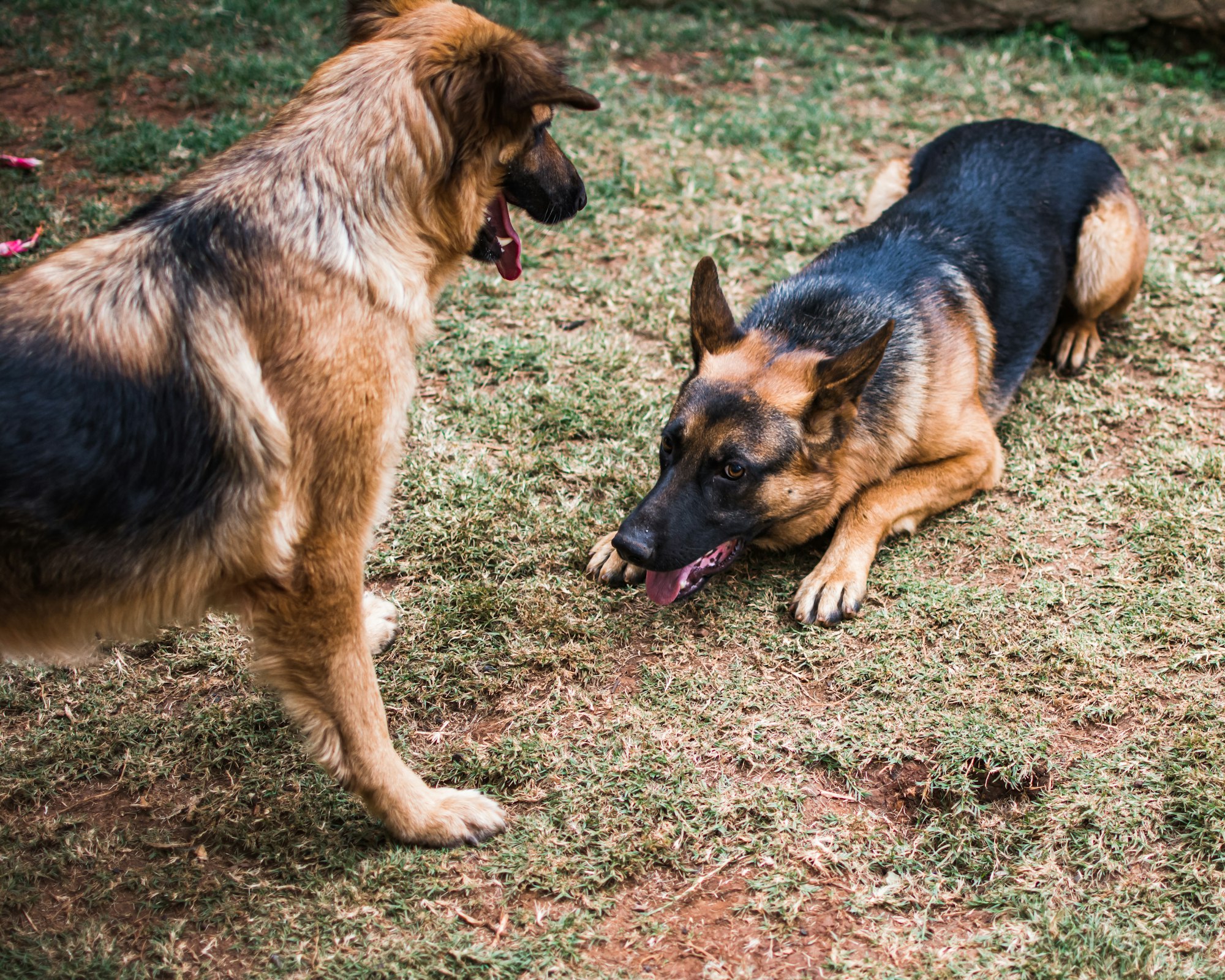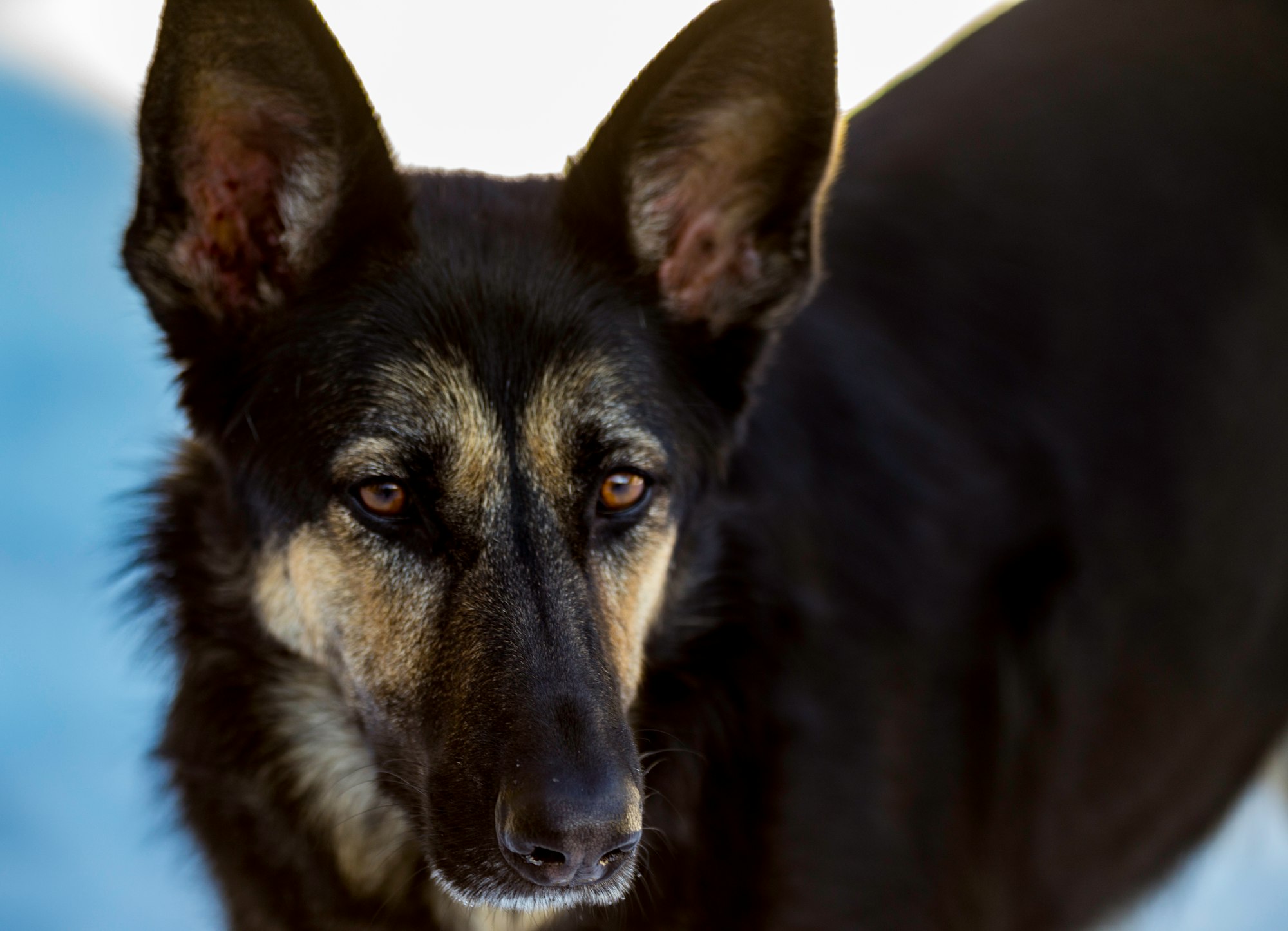Dealing with German Shepherd Aggression can be a daunting task for many pet owners. Imagine having a lively and energetic German Shepherd that suddenly starts to show signs of aggression. It's a situation that can leave you puzzled, worried, and even scared. But don't worry; there are effective ways to manage this behavior. In this comprehensive guide, we'll take you through a step-by-step journey to understanding German Shepherd aggression and how to deal with it.
Understanding German Shepherd Aggression
Aggressive behavior in dogs is complex, but it's vital to understand the underlying causes.
Aggression in German Shepherds might be a result of a lack of socialization, fear, territoriality, or even health issues.
Let's dig into the common reasons for aggression, and what you can do to manage them.
Socialization and Training
Proper socialization and training are essential to prevent aggression in German Shepherds.
Start by exposing your dog to different environments, people, and other dogs.
Dog probiotics can also be helpful in maintaining your dog's overall gut health, which may positively affect behavior.
Training should be consistent and include positive reinforcement techniques.

Fear and Anxiety
Sometimes, aggression is a response to fear or anxiety.
If your German Shepherd is aggressive due to fear, gradual exposure to the fear-inducing object or situation might help.
Melatonin for dogs could also be considered as a supplement to calm anxiety, of course, under the supervision of a veterinarian.
Territorial Behavior
German Shepherds are known for their strong territorial instincts.
Training them to understand boundaries is vital.
Also, provide safe spaces for your dog to retreat if feeling threatened.
Health Issues
Sometimes, aggression can be a sign of underlying health problems.
Dew claws, an often overlooked part of the dog's anatomy, can sometimes cause discomfort, leading to aggression.
Make sure you consult with a veterinarian to rule out any underlying health issues, such as pain caused by flea bites on dogs or any other physical ailments.
Professional Help
If the situation is challenging to handle, seeking professional dog training assistance is advisable.
They might implement specific techniques or suggest dogs stem cell therapy for any underlying health issues causing aggression.
Feeding and Medication
Sometimes, aggression might be linked to feeding.
Use pill pockets for dogs to administer any required medication without causing stress.
Providing a balanced diet can also make a significant difference.
Strategies to Tackle Aggressive Behavior
Now that we've delved into the possible reasons behind German Shepherd aggression, let's discuss strategies to tackle this complex issue. These methods aren't merely theoretical concepts; they've been successfully employed by dog owners and trainers worldwide.
Early Intervention and Socialization
Early intervention is crucial to address aggressive tendencies. Here's a real-life example:
Meet Max, a young German Shepherd who started showing signs of aggression towards other dogs. His owners quickly realized that proper socialization was key. They began taking Max to dog parks and enrolled him in puppy classes. Over time, Max's aggression diminished, and he learned to play nicely with other dogs.
Key Takeaway: Early intervention and proper socialization can nip aggressive tendencies in the bud.
Building Trust Through Training
Building trust is paramount in handling German Shepherd aggression. Here's how one family did it:
Lucy, a rescued German Shepherd, was aggressive and distrustful. Her new family knew they had to build trust. Through consistent training and positive reinforcement, they were able to create a strong bond with Lucy. She transformed from an aggressive dog to a loving family pet.
Key Takeaway: Training centered around trust and positive reinforcement can transform behavior.
Using Distraction Techniques
Sometimes, simple distraction techniques can help. Here's an illustration:
Rex, a territorial German Shepherd, used to bark aggressively at visitors. His owners found a solution by using his favorite toys to distract him when guests arrived. Over time, Rex associated visitors with playtime rather than a threat.
Key Takeaway: Distraction can shift focus from aggression to something more positive.
Seeking Professional Help When Needed
Don't hesitate to seek professional help if the aggression persists. Professional dog trainers have the expertise to analyze and address your German Shepherd's specific needs. They can tailor training sessions to your dog's personality, offering solutions you might not have considered.
A Personalized Approach
Every German Shepherd is unique, and there's no one-size-fits-all solution to aggression. Understanding your dog's specific triggers, working consistently with training, utilizing distraction techniques, and seeking professional help when necessary can lead to positive changes.
Working with Breed-Specific Traits
German Shepherds are known for their intelligence, loyalty, and sometimes, their strong-willed nature. Understanding these breed-specific traits is vital in dealing with aggression. Let’s explore this aspect further.
Recognizing and Utilizing Intelligence
German Shepherds are incredibly intelligent, often used in police work and as service dogs. But how can intelligence play a role in curbing aggression?
For example, a German Shepherd named Bella started showing aggression during walks. Her owner recognized her intelligence and channeled it into agility training. This positive outlet allowed Bella to use her mind and body in a constructive way, significantly reducing her aggressive tendencies.
Key Takeaway: Utilizing a German Shepherd’s intelligence through activities can be a successful way to mitigate aggressive behavior.

Loyalty and the Importance of the Pack
German Shepherds are pack animals, and they view their human family as part of their pack. Sometimes, aggression may stem from their natural instinct to protect their pack.
Consider Sam, a German Shepherd who was overprotective of his family, sometimes leading to aggression towards strangers. Sam’s family worked with a trainer to teach him that not all strangers are threats. They introduced him to new people gradually, always in a controlled environment, and this reduced his aggressive reactions.
Key Takeaway: Understanding a German Shepherd’s loyalty and pack instincts helps in addressing protective aggression.
Working with a Strong-Willed Nature
Some German Shepherds might be strong-willed, which can lead to stubbornness and even aggression if not handled correctly.
Take the story of Duke, who was both intelligent and strong-willed. His family struggled with aggression during training sessions. They realized that Duke needed mental stimulation combined with firm, consistent training methods. With time, patience, and persistence, Duke's aggressive behavior was replaced with obedience and trust.
Key Takeaway: Recognizing a strong-willed nature and adapting training techniques can lead to success in handling aggression.
Resources and Support
Whether you’re facing aggression in your German Shepherd for the first time or seeking new strategies to handle ongoing issues, there are resources and support available:
- Dog Training Classes: Offer opportunities for socialization and professional guidance tailored to your dog’s specific needs.
- Veterinarians: Can diagnose underlying health issues that might be causing aggression, from flea bites on dogs to more complex problems that might require treatments like dogs stem cell therapy.
- Online Communities: Forums and social media groups provide support from fellow German Shepherd owners who might have faced similar challenges.
Personal Stories: Learning from Others
Sometimes, the best way to learn is through the stories of others who have faced similar challenges. Here are a few personal stories from German Shepherd owners that might resonate with you.
Molly's Transformation Through Consistency
Molly, a lively German Shepherd, was once known for her aggressive behavior around other dogs. Her owner, Sarah, realized that consistent training was the key. By setting clear rules and maintaining a routine, Molly's aggressive tendencies slowly diminished. Sarah also found that introducing dog probiotics helped in Molly's overall wellbeing, adding another layer to her successful transformation.
Key Takeaway: Consistency in training and care can lead to positive changes.
Jack's Recovery with Professional Help
Jack was an adopted German Shepherd with a history of abuse, leading to significant aggression. His new owner, Tom, tried various methods without success. Eventually, he sought professional help. A specialized trainer used various techniques, including positive reinforcement and introducing melatonin for dogs to calm Jack's anxiety. Jack's recovery is a testament to the power of professional intervention.
Key Takeaway: Don't hesitate to seek professional help; it can make all the difference.
Bella's Health-Related Aggression
Bella, a once gentle German Shepherd, started displaying aggression seemingly out of nowhere. Her owner, Emily, was puzzled until a visit to the vet revealed that Bella was suffering from discomfort caused by flea bites on dogs. With proper treatment and care, including using pill pockets for dogs to administer medication, Bella returned to her friendly self.
Key Takeaway: Health issues might be underlying causes of aggression. Always consult with a veterinarian.
Technology and Modern Solutions
In our ever-evolving world, new technologies and treatments are emerging that might be beneficial in dealing with German Shepherd aggression:
- Dogs Stem Cell Therapy: This innovative treatment is helping dogs with various health issues that might be linked to aggression. Always consult with a veterinarian to determine if it's suitable for your dog.
- Online Training Platforms: Virtual dog training classes can provide personalized guidance from the comfort of your home.
- Smart Collars and Gadgets: These devices can monitor your dog's behavior, providing insights into patterns that might lead to aggression.
- Introducing FI Dog Collars: A Modern Solution
In the context of dealing with German Shepherd Aggression, it's essential to explore all the tools at our disposal. One such innovative tool is FI Dog Collars. Let's dive into how these advanced collars align with our discussion on managing aggression in German Shepherds.
Monitoring Behavior with FI Dog Collars
FI Dog Collars come equipped with cutting-edge technology that allows you to monitor your dog's behavior and activity levels. Understanding patterns in your German Shepherd's behavior can be crucial in identifying triggers for aggression.
Real-life Example: John had a German Shepherd, Max, who would often become aggressive during specific times of the day. By using an FI Dog Collar, John could track Max's activity and realize that his aggression was linked to a neighborhood noise that occurred regularly. By addressing this trigger, John was able to significantly reduce Max's aggressive responses.
Key Takeaway: FI Dog Collars provide valuable insights into behavior patterns, aiding in identifying and addressing aggression triggers.

Training Support with FI Dog Collars
Training is a vital part of managing German Shepherd aggression, and FI Dog Collars can be a beneficial part of this process.
These collars offer features like GPS tracking, allowing you to monitor your dog's location during off-leash training sessions. If your German Shepherd exhibits aggressive tendencies during outdoor activities, the ability to track and manage their movements can be a game-changer.
Key Takeaway: FI Dog Collars enhance training sessions by providing additional control and safety.
Health Monitoring and FI Dog Collars
As we've discussed earlier, health issues can lead to aggression in German Shepherds. FI Dog Collars offer features that monitor your dog's overall wellbeing.
For instance, if your German Shepherd is on specific treatments like dogs stem cell therapy or requires regular administration of supplements like melatonin for dogs, the FI Dog Collar can help track your dog's daily activity levels, ensuring that any sudden changes that might indicate health issues are promptly noticed.
Key Takeaway: FI Dog Collars support health monitoring, helping in early detection of problems that might lead to aggression.
Conclusion:
Dealing with German Shepherd Aggression is a multifaceted journey requiring understanding of the breed's specific traits, early intervention, trust-building, training, recognizing health issues, and utilizing modern tools like FI Dog Collars. The guide has encompassed real-life examples, strategies tailored to individual needs, technological advancements, and innovative solutions.
Whether it's employing traditional methods or embracing cutting-edge products, the comprehensive approach outlined here aims to support German Shepherd owners in fostering a loving, respectful, and harmonious relationship with their pets. The challenges may be complex, but the rewards of success are boundless and enriching.




